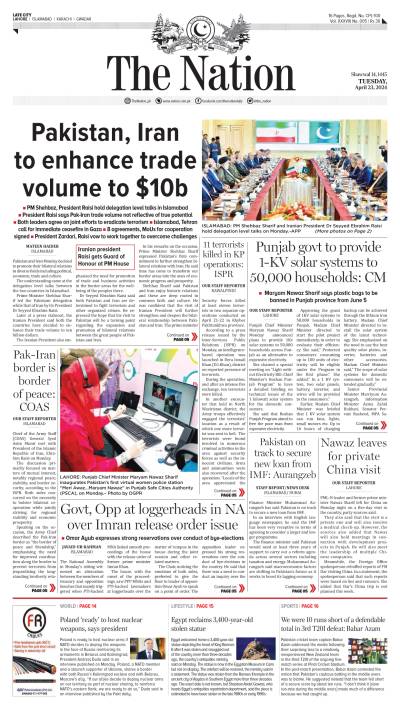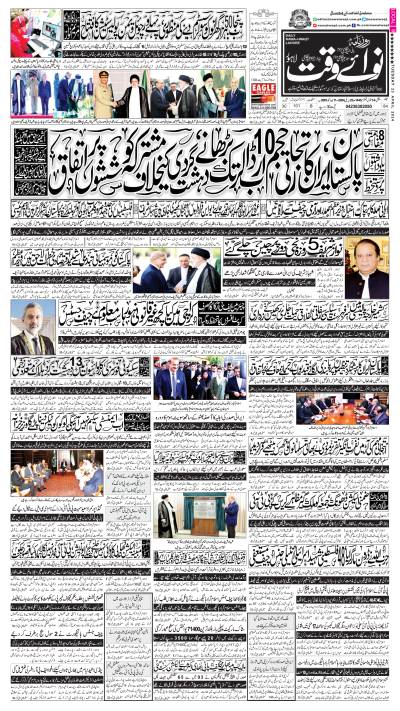|ISLAMABAD- Around 37 per cent of adolescent girls in Punjab are deprived of education and employment opportunities and more efforts are required to empower them in the society, a report released said on Friday. The Population Council launched the report with support of the United Nations Children’s Fund (UNICEF) here. The report examines the lives, aspirations, and perspectives of the largely invisible and marginalised group of older adolescent girls (ages 15–19 years) who are “not in education, employment for pay or profit, nor in marriage”. The study was conducted in three districts of Punjab.
The study revealed that out of 11 million adolescent girls aged 15–19 years in Pakistan, 6 million reside in Punjab. About 37 per cent of these girls are neither at school, nor employed for pay or profit, and they have not yet made the transition to marriage. These girls spend long hours in household work, caring for younger siblings, and supporting their parents’ economic work. The report said the girls are deprived of opportunities to interact in an institutional setting, such as a school or formal workplace, where they might earn an income of their own and build the knowledge, skills, and relationships that could enable them be more empowered and productive as adults.
In her welcome remarks, Aida Girma, Country Representative, UNICEF reaffirmed UNICEF’s role to work with the government of Pakistan in ensuring that no child is left behind as far education is concerned. She also highlighted the greater need for empowering girls in Pakistan by providing them better opportunities at education and employment.
MNA and Parliamentary Secretary, Planning Development & Reform Kanwal Shauzab said that more efforts should be made to provide marketable skills to adolescent girls and connect them to viable jobs so that they can be empowered, and the process of empowerment starts from provision of quality education which largely hinges upon provision of conducive environment in schools which are well-equipped with clean bathrooms, safe boundary walls and other necessities.
Dr Zeba Sathar, Country Director, Population Council said that the study sheds light on the circumstances, hopes and possibilities for adolescent girls between 15 to 19 years of age. There is a need to empower those more than 5 million adolescent girls to fulfill their own potential and also as a necessityfor reaping the demographic dividend.
Talking on the occasion, Dr Nausheen Hamid, Member National Assembly and Parliamentary Secretary, National Health Services, spoke about the importance of girls education in terms of women empowerment as its concomitant benefits on health and wellbeing of women and their families. She said these educated girls can make informed decisions about family size and make important household decisions.
Tuesday, April 23, 2024
37pc girls deprived of education, employment in Punjab: Report
9:38 AM | April 23, 2024
Russia says there is ‘no basis’ for arms control, strategic stability dialogue with US
12:25 PM | April 23, 2024
PM takes notice of deliberate delay in tax cases
12:14 PM | April 23, 2024
Knowledge without ethics has no value, says Iran president's wife Dr Jamileh
11:24 AM | April 23, 2024
ICT admin arrests over 900 alms-seekers
April 23, 2024
Attock observes Earth Day with tree plantation drive
April 23, 2024
More Rifts in PTI
April 21, 2024
Smuggling Collusion
April 21, 2024
Old Carrots, New Sticks
April 21, 2024
Policitising Tragedy
April 20, 2024
Tehran to Rafah
April 20, 2024
Space print revolution
April 23, 2024
Digital grievance
April 23, 2024
Wonders of VR
April 22, 2024
Toxoplasmosis in big cats
April 22, 2024
Social welfare
April 21, 2024
ePaper - Nawaiwaqt
Advertisement
Nawaiwaqt Group | Copyright © 2024





